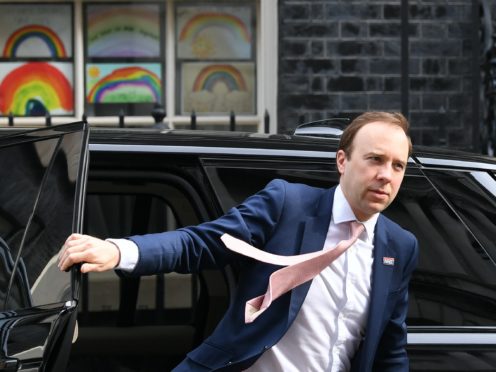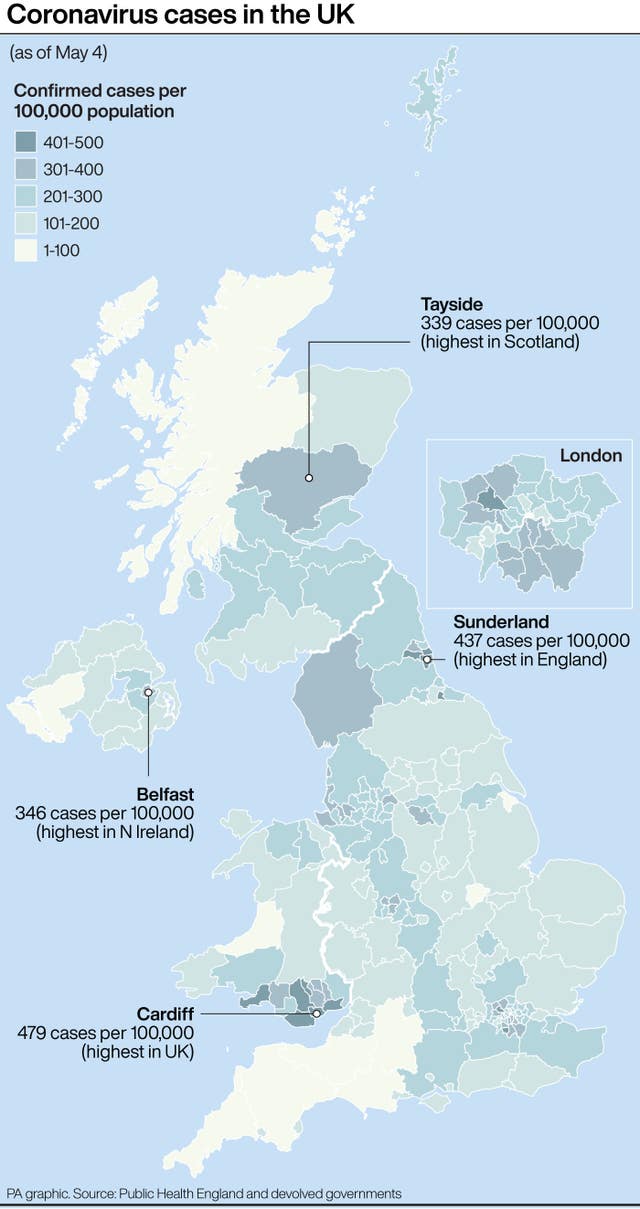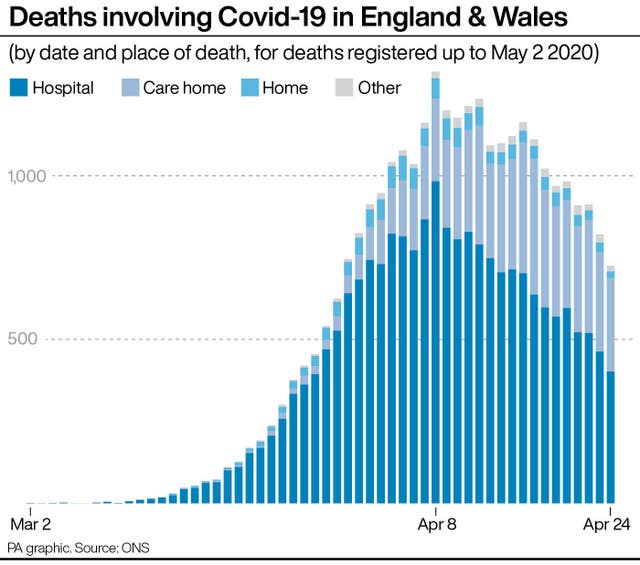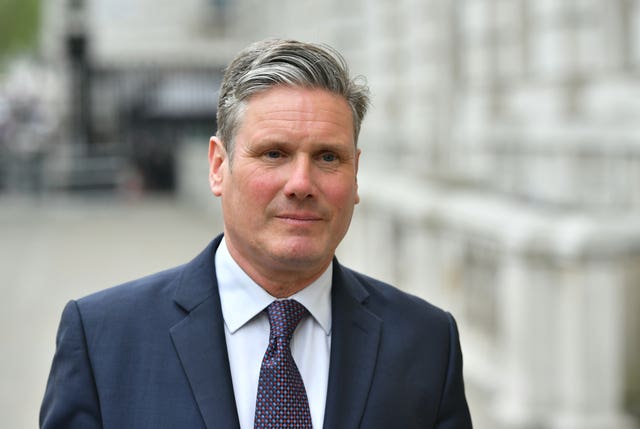
Health Secretary Matt Hancock has dismissed warnings by civil liberties campaigners that a new coronavirus contact tracing app could open the door to widespread “state surveillance”.
Ministers are urging the public to sign up to the app – which is beginning trials on the Isle of Wight -as a way out of the current lockdown and re-starting the economy.
The Government’s efforts to promote the new “test, track and trace” strategy came as official figures showed the death toll had soared past 30,000 and analysis by the PA news agency found at least 140 NHS and care workers have lost their lives.
Ministers have run into opposition from some Tory MPs and campaign groups concerned about the potential for the state to monitor individuals’ movements and contacts through the app.

Mr Hancock however insisted it is “completely wrong” to say that the app represents a threat to civil liberties.
Instead, he said it is a “very, very positive step” which will enable people to regain some of the freedoms they had lost as a result of the lockdown.
The row erupted as the latest figures from the Office for National Statistics showed another rise in the weekly number of registered deaths involving Covid-19 occurring in care homes in England and Wales.
The total for the week ending April 24 was 2,794, up from 2,050 in the week ending April 17 – an increase of 36%.
Over the same period the number of registered deaths involving coronavirus occurring in hospitals fell from 6,107 to 4,841 – a decrease of 21%.

In other developments:
– A total of 32,375 deaths involving Covid-19 have now been registered across the UK;
– Lockdown restrictions should be eased “very gradually” in order to maintain public trust in health policy, according to a newly-published paper from a scientific pandemic influenza group which looks at behaviour and is advising the Government;
– Chief scientific adviser Sir Patrick Vallance said the risk of a second peak is “very real”, telling MPs it was something “you need to watch out for, and you can see it in other countries”;
– Education Secretary Gavin Williamson said there would be a “phased approach” to reopening schools.
The new NHS Covid-19 app is central to the Government’s “test, track and trace” strategy for controlling the spread of the disease while easing social distancing rules.
Mr Hancock said concerns about the app expressed by groups such as Amnesty International UK – which warned they are “opening the door to pervasive state surveillance” – are misplaced.
“The purposes of this are purely and simply to control the spread of the virus, which is really important,” he told BBC Breakfast.

“We’ve all had to give up significant infringements on our liberty – for instance, with the social distancing measures and the lockdown – and we want to release those, and this approach will help us to release them.”
The app uses Bluetooth to track and trace contacts between users – alerting people if someone they interacted with has displayed symptoms or tested positive for the virus.
Officials insist it is designed with privacy and security “front of mind”, with the data stored on an individual’s phone until the point they contact the NHS to report symptoms and request a test.
However, Amnesty International UK director Kate Allen said ministers need to explain why – unlike other European countries – Britain is establishing a central database to store information.
UK: Privacy must not be 'another casualty' of the virushttps://t.co/il8AwrcCfv
— News From Amnesty (@NewsFromAmnesty) May 4, 2020
“We remain concerned that the Government is using the coronavirus pandemic to normalise technologies that threaten our privacy rights, and which the public would not accept in ordinary circumstances,” she said.
Ministers have said that if the pilot on the Isle of Wight – beginning on Tuesday with NHS and council staff – is successful, the app could be rolled out across the country within weeks.
Mr Hancock said the more people who sign up to it, the more effective it will be.
“What I can tell you is that if you download the app then you are doing your duty and you are helping to save lives, and you’re helping to control the spread of the virus,” he said.

Labour leader Sir Keir Starmer said he hopes the trial succeeds but warned that the Government needs other contact tracing measures in place as well.
“I am a bit concerned that a similar app in Singapore only had, I think, something like a 20% take-up rate in the public,” he told BBC Radio 4’s Today programme.
“So, what I’m pushing the Government to say is you are going to have to have the traditional way of tracing as well, which is doing it more manually – phoning people, etc, etc.
“Because, if you put all your eggs in the basket of this particular app – which I want to work as much as anybody else – it may a) it may not work, or b) it may be that not enough people take it up.”

Enjoy the convenience of having The Sunday Post delivered as a digital ePaper straight to your smartphone, tablet or computer.
Subscribe for only £5.49 a month and enjoy all the benefits of the printed paper as a digital replica.
Subscribe